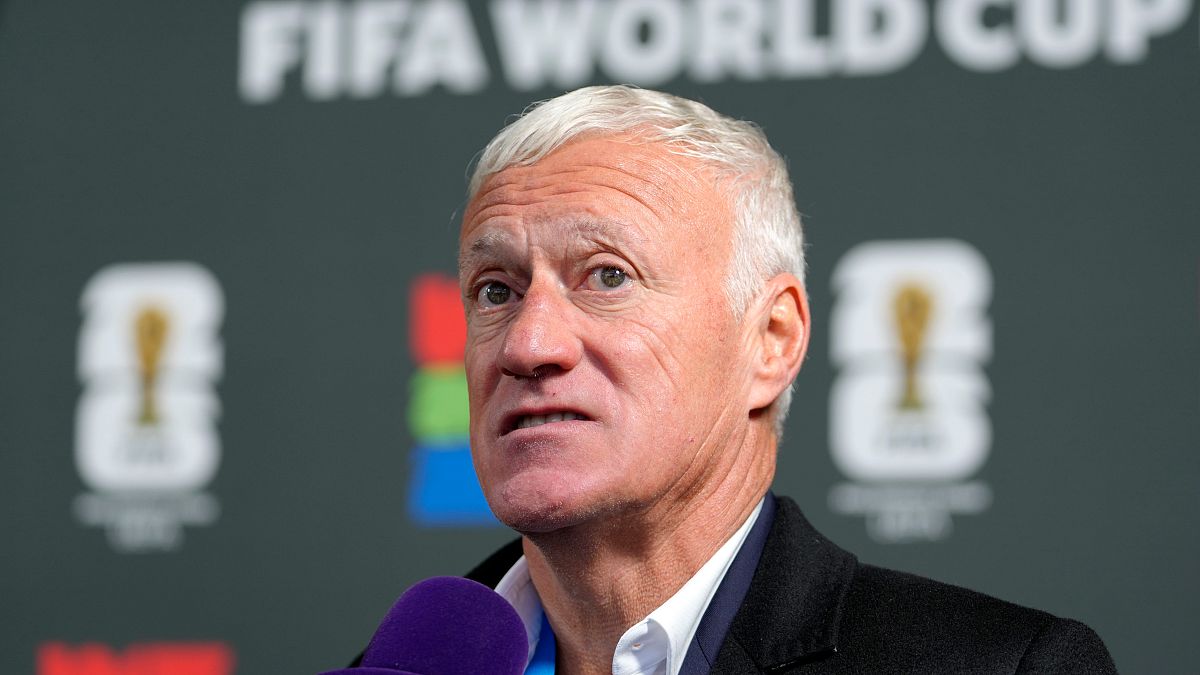Trump's victory could be a 'major blow' for global climate action but experts say it may not slow the roll of the green transition.
Donald Trump has won the US election, securing a second term in the White House.
For many across the world, his victory has stoked uncertainty over the future of global climate action.
Trump has long deemed climate change a “hoax”, railing against Biden’s climate policies and dismissing threats like rising sea levels. During his last term, he attempted to roll back around 100 environmental bills.
Promises have been made this time around to row back spending on green energy, exit vital international climate agreements and bring about a new wave of drilling for oil and gas which he has called “liquid gold”.
“The nation and world can expect the incoming Trump administration to take a wrecking ball to global climate diplomacy,” says policy director and lead economist for the Union of Concerned Scientists’ climate and energy programme, Rachel Cleetus.
With existing policies already falling far short of emissions targets, she says we can expect US federal climate action to be “derailed” for the next four years.
“The science on climate change is unforgiving, with every year of delay locking in more costs and more irreversible changes, and everyday people paying the steepest price.”
Recent deadly flooding in Spain has proved a stark reminder of this danger. As European Commission President Ursula von der Leyen said last week, “This is the dramatic reality of climate change”.
Can Trump dismantle Biden’s landmark climate law?
Biden directed billions into green tech through the Inflation Reduction Act. This landmark climate law was signed in 2022 and has since boosted clean energy investment across the country.
Despite this, Trump has vowed to dismantle the Inflation Reduction Act and block its remaining funds from being spent. He has called Biden’s climate agenda the “green new scam”, pledging to terminate many of the policies put in place by this administration.
Though domestic climate policies are far from safe, Cleetus says, the Inflation Reduction Act’s clean energy provisions could prove durable “as they’re delivering significant economic benefits to all states and have the support of workers, businesses and policymakers across the political spectrum.”
Economic experts have pointed out that its subsidies have created thousands of new jobs - a significant number of which are in Republican areas.
Dan Lashof, US director of the World Resources Institute says Trump has “every reason to build on transformations already underway”.
“Electrifying buildings and transportation - including school buses - benefits rural and urban communities alike by cutting costs and improving efficiency.”
Lashof adds that where Trump takes a step back on climate action, states, cities and businesses can step in to fill the breach.
“Thanks to the generous tax incentives and investments from the Inflation Reduction Act and Bipartisan Infrastructure Law, subnational actors have more resources than ever to cut emissions, expand clean energy and electric transportation and address environmental injustices.”
Investors aren’t so sure, however, with shares in European clean energy groups plummeting on Wednesday morning. Stocks in solar also fell over fears Trump could hamper clean energy progress.
Exiting the Paris Agreement for the second time
During his first term in office, Trump fulfilled his promise to pull the US out of the Paris Agreement - if only briefly.
Countries could not leave the agreement until three years after it came into force which saw the US exiting the Paris Accords on the first day of Biden’s presidency. The US swiftly rejoined and was outside of the agreement for less than four months.
Trump has once again promised that he will pull the US out of the Paris Agreement and this time UN rules mean he will only have to wait one year to officially do so. The world’s second-biggest emitter would join just three other countries that are outside of the agreement: Iran, Libya and Yemen.
A push for the US to leave the founding treaty of the UN climate talks, the United Nations Framework Convention on Climate Change (UNFCCC) has also been rumoured.
Though it is unclear whether it is legally possible for Trump to do this, an exit from the UNFCCC would leave the US barred from officially participating in international climate negotiations. Instead, it would become an observer - the same category as climate campaigners, NGOs and business lobbyists.
What does this mean for global climate action?
“The result from this election will be seen as a major blow to global climate action but it cannot and will not halt the changes underway to decarbonise the economy and meet the goals of the Paris Agreement,” former UN climate chief and Paris Agreement architect Christiana Figueres said in a post on social media.
“Standing with oil and gas is the same as falling behind in a fast moving world.”
She adds that clean energy technologies will continue to outcompete fossil fuels.
“Not just because they are healthier, faster, cleaner and more abundant, but because they undercut fossil fuels where they are at their weakest: their unsolvable volatility and inefficiency.”
But experts worry that Trump’s promise to “drill, baby, drill” will drive up emissions at this pivotal point in global efforts to mitigate climate change.
A Carbon Brief analysis from earlier this year found that a win for Trump could lead to an additional four billion tonnes of US emissions by 2030 compared to incumbent Joe Biden’s plans.
That is the equivalent of the combined annual emissions of the EU and Japan or those of the world’s 140 least emitting countries.
The analysis points out that this is enough to negate all of the emissions saved by the deployment of wind, solar and other clean tech around the world over the last five years - twice over.
The US is one of the biggest contributors to global climate finance - a major focus for COP29 which begins in Baku next week. This funding saw massive cuts during Trump’s last presidency and negotiators will likely expect previous promises from the US to fall through.
And the US quitting the Paris Agreement could have a big impact on the UN climate talk process overall. With the world’s second-biggest emitter out of the pact, the pressure for others to increase their ambitions is much less.
Is it time for Europe to step up on climate change?
Laurence Tubiana, CEO of the European Climate Foundation and main architect of the Paris Agreement, says there is no doubt the US election result is a “blow in the fight against the climate crisis”.
A U-turn in support for clean tech and green investments puts the climate gains these policies have afforded the US at risk. The Paris Agreement is “stronger than any one country’s policies” however, Tubiana explains in a post on the social media site X.
“I think and hope no other country will follow if the US withdraws from the Paris Agreement. They know the transition is in their own interest - for their security and economies.”
Tubiana says that it is now time for Europe to step up - out of both moral duty but also strategic interest.
“This is a moment for Europe to strengthen its leadership on the global stage, in close partnership with others. The next few years are critical, and Europe must push forward - for its citizens and the planet. COP29 still matters and I believe a positive outcome is possible,” she says.
“My thoughts are with all the tireless activists dedicated to building a more democratic, peaceful and sustainable world.”
It is a sentiment echoed by the European Green Party.
“This election needs to be a wake-up call for all democrats and progressives in Europe,” says co-chair Mélanie Vogel. “We need to live up to the existential need to defend democratic values, to guarantee fundamental rights and to protect the common good.”
“Europe must respond with more democracy and more global solidarity,” co-chair Thomas Waitz adds. “We will keep resisting the far-right the world over, and continue to build alliances to fight it. In a world of fear, the European Union must become a beacon of hope.”

 2 months ago
23
2 months ago
23






 We deliver critical software at unparalleled value and speed to help your business thrive
We deliver critical software at unparalleled value and speed to help your business thrive






 English (US) ·
English (US) ·